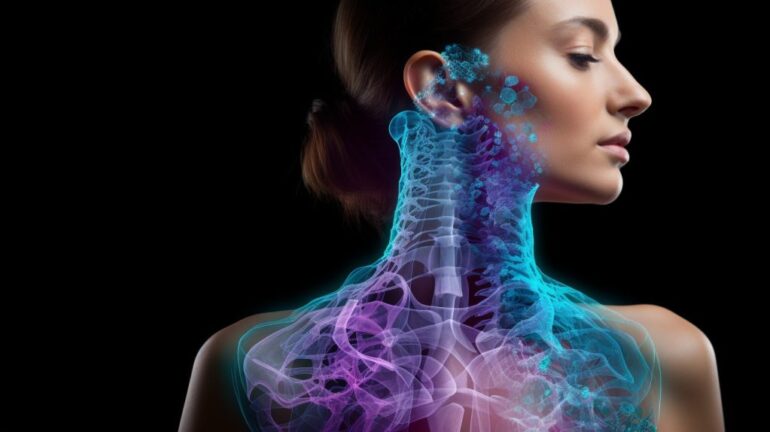TL;DR:
- ChatGPT, an AI-powered chatbot, is transforming the way individuals seek answers to health concerns.
- It provides personalized, quick information by scouring the internet based on user questions.
- While it aids in self-diagnosis, there are risks involved, such as inaccurate information and false reassurance.
- Dr. Karim Hanna sees its potential as a supplementary tool but emphasizes it cannot replace doctors.
- Informed patients leverage online resources alongside professional medical advice for a balanced approach.
Main AI News:
In the heart of Nikiksi, Alaska, Katie Sarvela sat in her bedroom, contemplating her unusual symptoms. She turned to ChatGPT, the AI-powered chatbot that has been revolutionizing the way individuals seek answers to their health inquiries. Despite initially receiving the standard disclaimer, ChatGPT astounded her by suggesting multiple sclerosis as a potential cause—a condition she had suspected for years.
Now 32, Sarvela has experienced these symptoms since her early 20s. Although she couldn’t secure an official diagnosis through ChatGPT, the speed and accuracy with which it pinpointed her condition left both her and her neurologist amazed.
ChatGPT, based on the GPT-3.5 large language model, is a cutting-edge chatbot that scours the internet for information and delivers it conversationally, tailored to the questions you pose. Its emergence in 2023 marked a significant milestone in the realm of generative AI tools. Often referred to as “self-diagnosing,” it redefines the way individuals navigate their health concerns.
For individuals like Sarvela, who have endured years of uncertainty before receiving a proper diagnosis, ChatGPT offers a personalized and potentially time-saving approach. Within a healthcare system plagued by long wait times, medical gaslighting, potential biases, and communication gaps between doctors and patients, this technology becomes a valuable resource.
However, entrusting a tool or new technology with your health entails risks. ChatGPT, in particular, may present information that is inaccurate or fabricated—a phenomenon known as “hallucination” in AI circles. Relying on such information without consulting a medical professional could have severe consequences. Dr. Karim Hanna, Chief of Family Medicine at Tampa General Hospital and Program Director of the Family Medicine Residency Program at the University of South Florida, recognizes ChatGPT’s potential but stresses that it cannot replace doctors. He educates medical residents on using ChatGPT as a supplementary tool for their practice, emphasizing that chatbots can also benefit patients.
Hanna draws a parallel to the long-standing use of Google by patients, asserting that Google is essentially a search engine, while ChatGPT represents a more sophisticated tool.
So, is “self-diagnosing” inherently harmful?
Navigating the realm of online health information, whether through a Google search or ChatGPT, comes with several caveats. First and foremost, not all health information is created equal, and distinguishing reliable sources from anecdotal accounts is crucial. Moreover, the ease of access to vast information may lead to “cyberchondria”—a state of anxiety stemming from self-diagnosed, potentially unfounded concerns. This could result in individuals wrongly attributing a common headache to a severe condition like a brain tumor, neglecting essential medical consultation.
Perhaps the most significant concern lies in false reassurance derived from inaccurate or incomplete information. Patients may underestimate the seriousness of their condition, assuming it to be inconsequential after consulting online sources. When it comes to mental health conditions, self-diagnosis becomes even more complex due to the challenge of translating subjective experiences into treatable health conditions. Relying on medication information from ChatGPT, with its propensity for hallucination, poses additional risks.
However, seeking general health information online isn’t inherently detrimental, provided it complements, rather than replaces, professional medical advice. Research from 2017 revealed that individuals who conducted online research before a doctor’s appointment still sought medical guidance. The frequency of online consultations correlated with a greater sense of reassurance.
A 2022 survey conducted by PocketHealth, a medical imaging sharing platform, showcased that “informed patients” draw their health information from various sources, including doctors, the internet, articles, and online communities. The coexistence of these multiple streams of information demonstrates the dynamic nature of modern healthcare.
Conclusion:
While ChatGPT and online health information democratize medical knowledge, they also carry the potential for anxiety and misinformation. Patients must weigh the benefits of self-triage against the risks of misdiagnosis and underestimating severe conditions. Informed patients find a balance between utilizing digital resources and seeking professional medical guidance—a crucial approach in today’s healthcare landscape.

